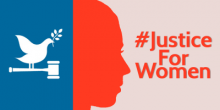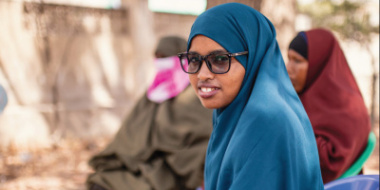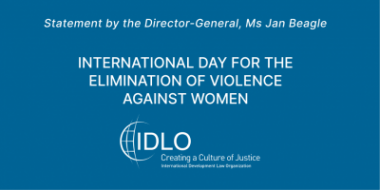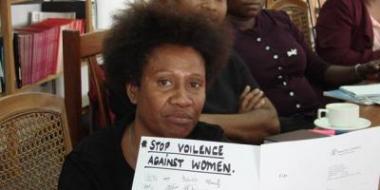UN GROUPE DE HAUT NIVEAU VISE À COMBLER L’ÉCART ENTRE LES GENRES EN MATIÈRE DE JUSTICE
La justice pour les femmes est indispensable à la réalisation d’un des principaux objectifs du Programme de développement durable à l’horizon 2030 : veiller à ne laisser personne de côté.















